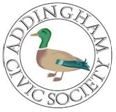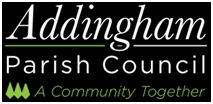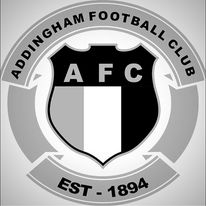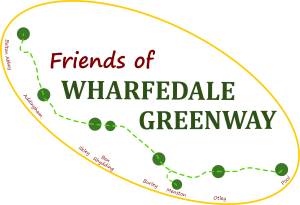Partners
CAA is a consortium of all community groups in the village who wish to be included:
The Parish Council is a founder member of Climate Action Addingham. It works closely together with the Civic Society on the CAA working group and provides the services of the Parish Clerk as the group’s administrator.
Current initiatives include:
- Introducing waste recycling at the Hub and Library
- Procuring cleaning and other supplies locally to minimise delivery distances
- Reducing office printing
- Funding and running a community project to provide free water butts, compost bins and food waste caddies to residents.
- Working with the Environment Group to improve the biodiversity of Council-owned green spaces in the village, especially the Memorial Recreation Ground
Addingham Civic Society (ACS) is a founder member of Climate Action Addingham. It works closely with the Parish Council. It is represented on the CAA working group by one of its Trustees and by members of the Environment Group.
In 2015 the Societyreviewed its constitution to include environmental protection as one of its objectives, a modification which led to the formation of the Environment Group in 2016.
Separately from the activities of the Environment Group the Society is addressing its own environmental footprint by:
- Moving away from the use of paper to electronic means in its communications with members
- Recycling waste from meetings
- Cross-checking for sustainability issues in the allocation of grants
- Assessing the carbon footprint of functions and trips organised by the Society
- Examining the sustainability policies and ethics of banking providers
Addingham Environment Group (AEG) was established in May 2016 as a sub-group of Addingham Civic Society. Members of the group’s Steering Committee take part in CAA as representatives of the Civic Society. The group’s role is to provide advice to the CAA and support its activities on:
- Reducing our carbon footprints
- Minimising waste
- Managing water wisely
- Protecting nature
Primary School
Friends of Addingham Primary School (FAPS)
Allotments and Gardens Association
St Peter’s Church is a living community with care of a Grade 1 listed building and a modern hall in a unique field setting (Church Field) which is itself a Scheduled Monument.
Lucy Comerford writes:
“We are attempting to become a carbon net zero church by 2030, in line with the commitments made by the Church of England and the Leeds Diocese, with the aim of directly addressing the causes of climate change, because every day we remain carbon positive we are contributing to those causes.
Our carbon reduction efforts are very much a work in progress:
- We have solar panels on the hall roof, and have recently added battery storage. We take the normal measures like low energy lightbulbs, lower heating temperature and boiler efficiency and maintenance, plus we are fortunate to have a number of trees on our land
- We are working on the extension of wi-fi to the church building to enable more efficient control of the existing heating system.
- Our future actions are guided by the Diocesan toolkit “Six Steps to Net-Zero” which provides a detailed plan of action for churches to follow. We hope to learn from examples of best practice. We are applying for an EcoChurch award which will help us to monitor our progress
Alongside our focus on climate change causes, we are mindful too of its effects and the need to include climate conscious input to our decisions about individual and community lifestyle and the stewardship of the buildings and land for which we are responsible.
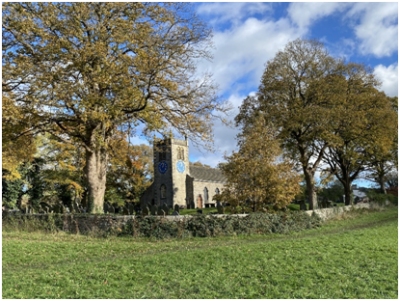
Picture credit: Anne Hodgson
Addingham Garden Friends (AGF)
Addingham Garden Friends is a group of 25 members who look after the gardens and planters in the village. The group was inaugurated in 2001.
There are 13 gardens and 18 planters throughout the village. These are located around the war memorial, by the Memorial Hall and Medical Centre and along Main St where they are called the Hen Pen, Sugar Hill and Triangle, Fountain Garden, Cottage Garden, Sailor Garden and Ruin, and the Lay-by garden.
Rita Leleux, chair of AGF writes:
“In response to climate change we are initially concentrating on three things:
- Gradually moving away from bedding plants to perennials. The perennials we are changing to are insect and bee-friendly plants such as various daisies and Rudbeckia, and Buddleia for butterflies
- When replacing planters, we are using ones made from sustainable materials with a life of 25 years, and where possible made locally from locally-sourced materials. The downside of this is cost – they are more expensive – so it will be a gradual process. We are also looking at using a supply of surplus local stone. We are grateful for funding towards this from the Civic Society, Totally Local and the Beer Festival
- Watering when only strictly necessary and then where possible using water from council-supplied waterbutts. We are also using plants that are more adaptable to climate extremes, so ensuring less watering would be required."

Photo credit: Rita Leleux
We are happy to answer any questionsyou may have about adapting your own garden to accommodate climate change when you pass us while we are working in the village.
We would also welcome new volunteers to help, particularly younger, active people as many of our volunteers are in the older age bracket, having been in the group for many years. Your reward will be knowing you are doing your bit to overcome the impact of climate change, good company, appreciation of villagers and of course tea and cake! Contact any of the Friends if you can help.
The Beer Festival
The Womens Institute
The Cricket Club
Scout Group
Ross Pearson, Bracken Ghyll manager writes:
“Bracken Ghyll Golf Club was founded in 1993. We’re pretty youthful as golf clubs go and we think that gives us a slightly different feel and outlook to the ‘traditional’ club. Originally founded as a 9-hole course, Bracken Ghyll has developed rapidly into one of the most enjoyable and challenging 18-hole courses in the North of England.
The course is complemented by a well-appointed bar with catering, and a function room that can accommodate up to 120 guests, extensive car parking, and a warm Yorkshire welcome.
We are proud to be owned by our members and are dedicated to making sure sustainability, community, equality, and value are at the heart of everything we do.
These core ethics mean that environmental issues are a priority for us and we recognise that to keep the Club around for another 30 years we need to lead the way. Being the largest green space in the village isn’t enough and we are not resting on our laurels. We aim to make that green space work for the community, the members, and the local wildlife in the best way possible.
Energy, water, and habitats are at the forefront of our future planning and in the next few years we want to:
- Reduce our energy usage through solar and wind power solutions
- Eliminate our water consumption on the course by channelling and storing water
- Protect and nurture areas of the course for wildlife through rewilding and control of invasive species
The Environment Group is already a fantastic partner and we will continue to work hand in hand with them in achieving these goals”.
Addingham Football Club
Addingham Pre-school





